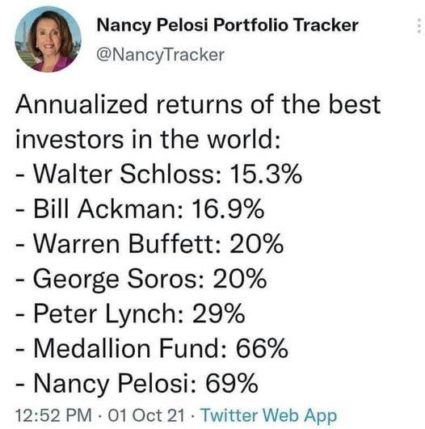Central planning mismanagement is under scrutiny in large part because the debacle can hardly be covered up anymore.
October 4, 2021
By: Bobby Casey, Managing Director GWP
For example, one central planning fail is what is happening at many of the US ports: they are backed up with at some points up to 60 ships waiting to unload at one port!
Evidently, part of the problem is “COVID-19”. According to Reuters:
The global supply chain has been reeling due to overwhelming demand for cargo; temporary COVID-19 closures of ports and factories in Asia; shortages of shipping containers and key products like resin and computer chips; and severe weather.
According to the NY Post:
The problem reflects a combination of growing cargo volumes, a labor shortage and COVID-related safety measures that slow the handling of each ship.
These are in large part a result of city, state, and federal handling of the pandemic. There was a time in history when the Commerce Clause of the Constitution was an imperative of the federal government to facilitate commerce. Regulate meant “make regular”: that is, to move things along like a laxative. Now it just means to regulate as in make more rules and control it.
From the suspicious individual scandals to the overt policies, it’s incredible how many people still want these sorts of people to run their healthcare and provide for their basic needs. I don’t think it’s possible for a private individual to fail as colossally as the government can fail systemically.
Central banking is no exception to the rule. The central banks around the world are responsible for so much of the economic strife in their respective countries.
As the reserve currency of the world, the US central bank — a.k.a. The Federal Reserve — has particular relevance around the world. Manipulations in the US currency market, ripples to developing countries as well that rely on commodities like rice or beans.
One of the biggest criticisms the US politicians have of China, is how China “manipulates” the markets. Do they do it any more of differently than the US? Is it worse when they do it?
How is injecting trillions of unbacked dollars into the global economy not a manipulation? How is 5.3% inflation this year alone not a manipulation for anyone dealing in US dollars? And by manipulation, I mean outright theft.
Obviously, I don’t hold a high opinion of the Federal Reserve Bank to begin with. I’m even more disappointed that so few bother to point out the ongoing scheme behind their “quantitative easing” policies, NIRP, and ZIRP.
Much like domestic politics, there’s very much an “Us vs Them” characterization in the media when it comes to why China or Russia is so bad.
China is bad, yet the US seems to be moving slowly toward some iteration of the Social Credit Score. You can’t get a job, you can’t travel, you can get credit, you can’t make a living… if your score is low. The US has been urging people to tattle on people, as if to ride the coattails of Cancel Culture.
If the US is going to claim a moral high ground it’s only that its policies have not yet reached the severity of the Chinese Communist Party… yet.
The corruption within the ranks is particularly interesting. Boston Fed President and Dallas Fed President both stepped down late September in light of revelations indicating they were trading during a policy setting meeting. That would be tantamount to insider trading.
Fed Chair, Jerome Powell insists he knew nothing about this, and of course is scrambling around to reinforce strict adherence to “the rules”. But this scandal is really saying the quiet parts out loud, if you think about it.
Any time money is printed out of thin air, the people at the top always get the greatest benefit from it. By the time it gets into full circulation, poor people are complaining their wages are too low for some inexplicable reason. Insider trading isn’t the largest betrayal of the central banking system. It’s the fractional reserve system, it’s the inflation, but two people making more off some inside knowledge isn’t it.
My super cynical side thinks this was purposely allowed to be covered to make an example of a couple of folks, and show that they suss out their bad actors at the Fed, and they take it very seriously. A sort of performance to woo back public trust. Who knows?
Either way, it overshadows the utter disasters that fascistic institution has created for the past 108 years, that’s for sure.
Something the Fed Board did say, that I think a few folks caught and took as instructive, was this:
Fed notes that its rules on personal financial practices are “stricter than those that apply to Congress.”
Seems benign enough right? Not long after this comment (and I’m not claiming this comment is causally linked to what follows, but it’s awfully coincidental), an interesting trend started among young folks on TikTok: they are following the investments of one House Speaker Nancy Pelosi.
[Chris] Josephs is the co-founder of a company called Iris, which shows other people’s stock trades. In the past year and a half, he has been taking advantage of a law called the Stock Act, which requires lawmakers to disclose stock trades and those of their spouses within 45 days.
Now on Josephs’ social investing platform, you can get a push notification every time Pelosi’s stock trading disclosures are released. He is personally investing when he sees which stocks are picked: “I’m at the point where if you can’t beat them, join them,” Josephs told NPR, adding that if he sees trades on her disclosures, “I typically do buy… the next one she does, I’m going to buy.”
On Twitter, there is an account called “Nancy Pelosi’s Portfolio Tracker”. From that account, the following post was made:
With this latest trend, we could just have a new generation of capitalists on our hands.
Click here to schedule a consultation on how you can protect your assets from overreaching governments, or here to become a member of our Insider program where you are eligible for free consultations, deep discounts on corporate and trust services, plus a wealth of information on internationalizing your business, wealth and life.



